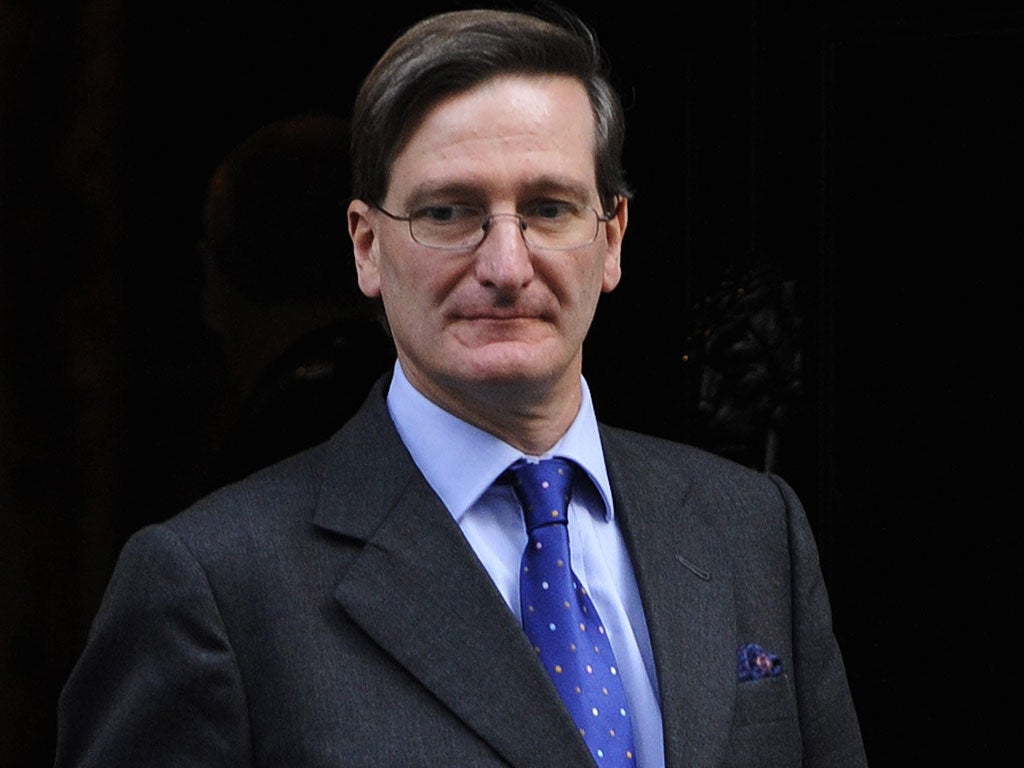Attorney General Dominic Grieve escalates row on votes for prisoners

Your support helps us to tell the story
From reproductive rights to climate change to Big Tech, The Independent is on the ground when the story is developing. Whether it's investigating the financials of Elon Musk's pro-Trump PAC or producing our latest documentary, 'The A Word', which shines a light on the American women fighting for reproductive rights, we know how important it is to parse out the facts from the messaging.
At such a critical moment in US history, we need reporters on the ground. Your donation allows us to keep sending journalists to speak to both sides of the story.
The Independent is trusted by Americans across the entire political spectrum. And unlike many other quality news outlets, we choose not to lock Americans out of our reporting and analysis with paywalls. We believe quality journalism should be available to everyone, paid for by those who can afford it.
Your support makes all the difference.The chasm between the Prime Minister and his Attorney-General appeared as wide as ever last night as Dominic Grieve reiterated his view that Britain has a legal obligation to consider granting voting rights to prisoners.
Within hours of Mr Grieve's evidence to the Justice Committee on Wednesday, that the UK risked damaging its reputation if it ignored a European Court of Human Rights judgment that it must lift a blanket ban on electoral rights for inmates, David Cameron had dismissed the suggestion.
"Prisoners are not getting the vote under this Government," he told MPs.
But last night, giving the keynote speech at the BPP Law School, Mr Grieve, pictured, said that although the ultimate decision lay with Parliament, which was not subservient to the Strasbourg court, "observing its judgments is an international legal obligation... It is possible for Parliament to take no action on the judgment, although that would leave the Government in breach of the Treaty and liable to criticism and sanctions from the Council of Europe by its fellow signatories and to damages awarded by the Court"/
Join our commenting forum
Join thought-provoking conversations, follow other Independent readers and see their replies
Comments